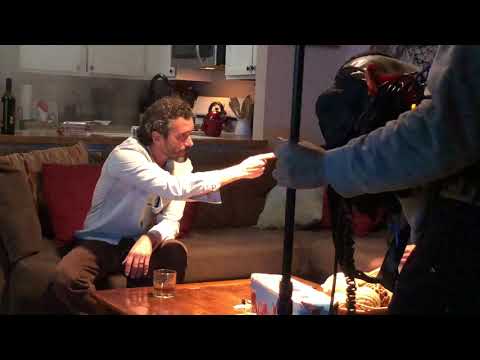WONDER WOMAN 1984 And SUPERMAN III: A Reflection On Truth, Justice, And The American Way
I cannot remember the first time that I was introduced to DC’s trinity — Superman, Wonder Woman, and Batman — because I must have been younger than three. In my childhood, Superman had recently died and had been resurrected; Batman was going through his transformation into a dark and gritty force of vengeance, which was born from Frank Miller’s The Dark Knight Returns and brought to film through Tim Burton’s Batman and Batman Returns; and the only Wonder Woman I knew was Linda Carter’s version from the TV show reruns. In my mind, these characters represented a force for good, especially Superman and Wonder Woman, who from the film and TV versions that I watched seemed to embody the values for which Superman fought: truth, justice, and the American way.
As a kid who saw Wonder Woman punching Nazis during World War II and had heard about the victory of the American way with the collapse of the Soviet Union, I imagined that the values for which these characters fought were connected to a fight for individual liberties as opposed to some form of fascism and justice in the sense that all are treated equally under the law and have an opportunity to succeed within our society. As I’ve grown up, I’ve come to recognize the contradiction of the American way with the terms truth and justice.
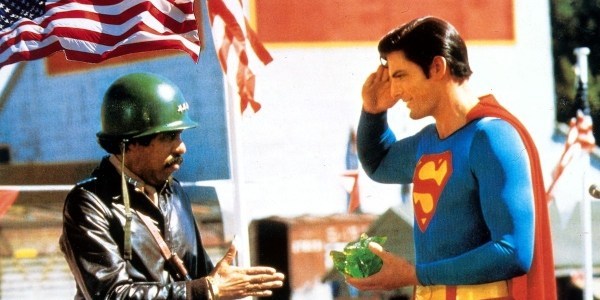
As an adult, when I hear “American way”, I imagine a mixture of neoliberal policies that became the center of conservative politics in the ‘80s and a set of capitalist business practices that put profit and stockholders above all other concerns, even ethical concerns. Reaganomics gave us a new form of the villain as a businessman, which is probably best captured through Gordon Gekko in 1987’s Wall Street. Though not well-received, Richard Lester’s Superman III attempted to pit the Man of Steel against a business person villain instead of facing a cataclysmic world-ending situation. Some critics at the time saw the corporate villain in Superman III as too small compared to the situations he had faced in the last two films, but, in American life, the greedy businessman affects the common person more than Lex Luthor shooting nuclear warheads at the San Andreas fault ever will.
With the recent release of Patty Jenkins’ Wonder Woman 1984, we not only revisit the 1980s of Superman III and Wall Street but also revisit the villain business person in a new light. By examining these two films, audiences can come to terms with why this struggle against business practices in America has felt so small and only slightly cathartic in past films. We can also examine the ideology that the new Wonder Woman film begins to unravel but still fails to fully challenge.
Superman III, Gus Gorman, and his corporate overlords
Superman III failed for many reasons, but one of its main failures is that it’s not a Superman film. Christopher Reeve is top-billed in the film as Superman, but the real protagonist of the film is Gus Gorman, portrayed by Richard Pryor. The audience first meets Gus Gorman at an unemployment office where he has been denied benefits from being on unemployment for too long. His struggle to find a job and the number of people in the unemployment office show the cruelty of ending his benefits. The job that he is supposed to get doesn’t exist or doesn’t pay enough.
The film opens in a manner that quickly evokes empathy for the plight of Gus. Between the cruelty of the economic and bureaucratic system that he is trying to navigate and the fact that he is played by the beloved Richard Pryor, the film encourages the audience to not only empathize with this character but to root for his success. When Gus leaves the unemployment office he finds a way to enroll in a computer programming school, where he graduates early because of his natural acumen for finding ways to bypass the rules within the programming of computer systems.
At this point, according to the pull-yourself-up-by-your-bootstraps mantra of Reaganomics, Gus should be on his path to a well-paying job; instead, he is hired by Webscoe Industries and is paid $143.80½ a week. It is when he notices the half-cent on his paycheck that his criminal career begins, which is directly connected to his rise within the corporate system of Webscoe Industries. Gus reprograms the computer to take all of the fractions of a cent floating around in the computer system and to direct it toward his paycheck. When the owner of Webscoe discovers Gus’s manipulation of the system, he doesn’t fire him; instead, he admires his ability to manipulate the system for his benefit.
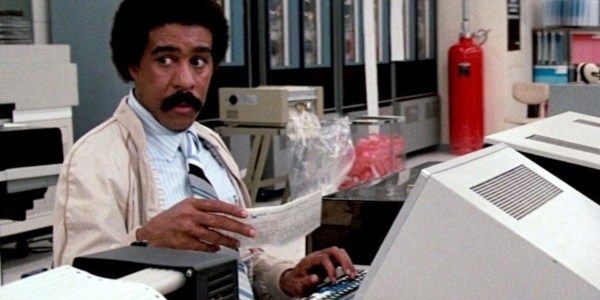
Gus is given the choice to either go to jail for his crime of embezzlement or to use his particular skills on the computer for the benefit of the corporation and its profit margin. In the following scenes, Gus, who is just desperate to survive and maybe even thrive in the American economic system, commits a series of digital crimes to manipulate the market in favor of his corporate bosses, and he even goes so far as to accidentally create artificial kryptonite that makes Superman selfish instead of weakening him. Gus’s career reaches its zenith when he designs a supercomputer that nearly kills Superman.
It is at the sight of Superman’s near demise that Gus is able to break from his boss and his own selfish desires and act not only selflessly but also possibly to his own detriment. Gus breaks the kryptonite ray that is killing Superman and Superman saves Gus from his own invention when it becomes self-aware. At the end of the film, Superman considers Gus’s act of saving him as a moment of redemption and does not turn him over to authorities; instead, he tries to assist him in finding a new job. Superman recognizes that Gus has failed on an individual level, but his individual failure is birthed from a system that encourages acts of selfishness that are harmful to others but beneficial to the bottom line.
A Missed Opportunity
Despite all of the elements of a social critique in Superman III, the filmmakers fumble the ball and choose to focus on technological changes. From the beginning to the end of Superman III, the screenwriter and director include moments to suggest that relying on computers too heavily may lead to disaster. This may be, but the film doesn’t appear to notice that the technology is not malicious. Even the self-aware computer is not inherently malicious; all of these machines are tools that are being misused by individuals. The machines are not greedy, nor do the machines have a motive even when one of them becomes self-aware.
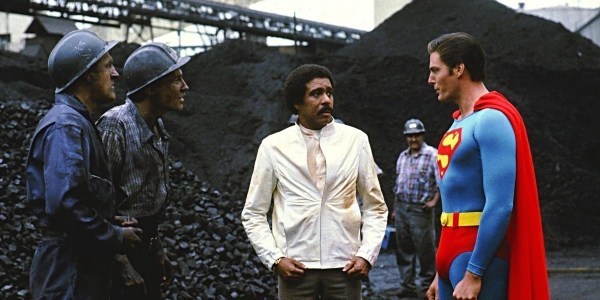
The machines in the film are a reflection of their creators; they are a tool that is being used. One of the reasons this film and other films like Superman III lack real catharsis is because taking down one company’s corruption does not change the world or solve the inherent problem. Corruption may not even be the right word because the fictional Webscoe and its real-world counterparts all operate on the same principles. Webscoe may exploit labor, cut corners, and manipulate the market and the government for its benefit, but so is every other corporation in the U.S. Taking out one bad CEO will not change the world, so the outcome of Superman III only shows how limited superheroes narratives are in critiquing societal structures. Superman rectifies the corruption of a business that has become overtly corrupt and the world returns to the status quo. Unfortunately, the status quo economy is still ripe with exploitation and inequality, and the common person, like Gus Gorman, loses.
Wonder Woman 1984 and the limits of our heroes
Wonder Woman 1984 also offers a critique of the capitalist system by focusing on the vice that fuels the system. Defenders of capitalism argue that the system is the most reasonable way to structure an economy because it is driven by self-interest. Though self-interest can be a great motivator for the individual, it does not necessarily build great communities because the system encourages everyone to focus only on themselves. When a society becomes this self-absorbed, there is no motivation to sacrifice or give to one’s neighbor because you are so focused on protecting and working toward your own benefit.
Self-interest when taken to its extremes becomes just another word for greed. Wonder Woman 1984 reveals the flaw in the fuel of capitalism through its McGuffin: a magical rock that grants wishes at a price. The three central characters of the film use this rock for different purposes, but the results are the same. Wonder Woman (Gal Gadot) wishes for the return of Steven Trevor (Chris Pine), who died in the last film. As a result, she loses her powers when the world needs them most. Barbara Ann Minerva (Kristen Wiig) wishes to be like Diana and begins to display the strength of Wonder Woman. As a result, she loses her humanity to the point of becoming Cheetah, an anthropomorphic Cheetah. Maxwell Lord (Pedro Pascal), who is a failed businessman and the main villain of the film, wishes to become the rock so that he can grant wishes and take whatever he desires from the people who make a wish. The price that he pays is his own physical health.
As the film progresses, each character suffers from the side effects of their wish, but the central focus is on the insularity of how they suffer. Wonder Woman gains the man that she loves, but she loses her identity as Wonder Woman and becomes disconnected from the world. Barbara completely loses her humanity by becoming an apex predator that is separated from others, and Maxwell Lord further strains his already troubled relationship with his son while also nearly destroying the world and the lives of all of those who made a wish.
The film reaches its climax when Maxwell Lord harnesses the technology to come into contact with the whole world at once and allow everyone to make a wish. As the globe begins to make wishes, the world further deteriorates into chaos as everyone wishes in their own self-interest and to the intentional or unintentional detriment of their neighbors.
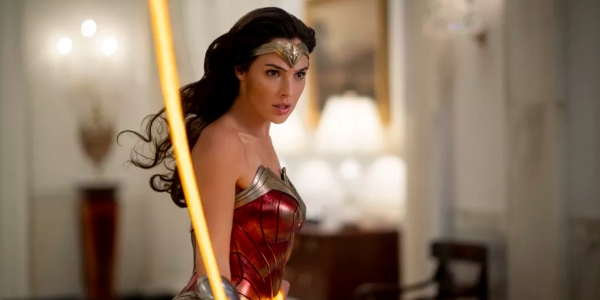
Wonder Woman is the first to recognize that she has to renounce her wish. She has to lose Stever Trevor again to not only reconnect with the world at large but to save it. She renounces her wish, regains her power, and rushes to stop Lord only to find that this is a battle that she cannot win through force as she did in the last film. Through his connection with everyone on earth and the constant stream of wishes, Wonder Woman is not even able to get close to Lord, but her lasso of truth is able to touch the particle stream that connects him to the world.
It is when Wonder Woman speaks to the world that the film becomes interesting in its avoidance of ending the key villains’ plan without violence, but it is also in this scene where the film falls into the status quo of the superhero genre. Wonder Woman uses the lasso of truth to help the world see the truth, but the world cannot be saved without their consent. Wonder Woman must convince the world to renounce their wishes to prevent nuclear annihilation, and through the lasso of truth, she ultimately succeeds to make her argument. She is even able to convince Lord to renounce his own wish.
Wonder Woman’s ultimate power in the film is truth; it is the ability to make the world recognize that their actions were destructive. Though the need for truth in our contemporary moment and our need to reckon with the destructiveness of our current choices are pertinent, the vision that Wonder Woman offers is blind and lackluster. Wonder Woman argues,
I’ve never wanted anything more. But he’s gone, and that’s the truth. And everything has a price. One I’m not willing to pay. Not any more. This world was a beautiful place just as it was, and you cannot have it all. You can only have the truth. And the truth is enough. The truth is beautiful. So look at this world, and look at what your wish is costing it. You must be the hero. Only you can save the day. Renounce your wish if you want to save this world.
The speech argues that there are no quick or easy fixes to the problems of the world, and the wishing stone reveals that everything comes with a price. But, the speech fails to be revolutionary because it does not acknowledge that there are real problems with the world and some of the selfishness within the wishes arise from structural issues and our discontent.
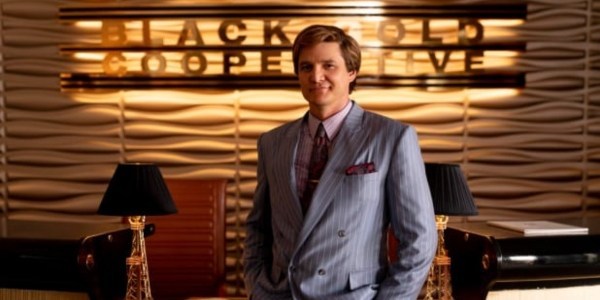
She is right that there are aspects of our world that are beautiful, but there are many injustices within our social and economic systems that are not. Telling people to accept the status quo of the pre-wish world is telling them to accept all of the structural injustices that inspired the greed and discontent within the lives of the wishers.
Conclusion
Wonder Woman 1984, despite its attempts to break from the norms of the superhero genre, fails to tackle the inherent issues that lay within the idea of the business person as a villain. Worse of all, like Superman III, it returns the world to the status quo without a thought to the systemic injustices that still ravage it, leaving us with a sense of hopelessness. In the world of Wonder Woman, her lasso can show the masses the truth, but we do not live in that reality. Wonder Woman 1984 succeeds in showing us that if we want to be saved we must make the hard choices of saving ourselves, but, in a time when people deny the existence of COVID-19 while they are dying of the same disease, it is difficult to find hope.
Though Wonder Woman 1984 does not suffer from the same staleness as other superhero films in its recognition that we cannot wait for the magic bullet or a hero to save us, it still imagines that the status quo is enough. If we are going to spend another ten years inundated with a glut of superhero cinema, I hope that the creators of these films can imagine a future beyond capitalism and fossil fuels. If superheroes are supposed to illuminate what is best in us and what is possible through our ingenuity and desire for the good, we have to find a way to move beyond the status quo of the neoliberal order in our own lives and in the narratives we create. We have to find a way to move beyond the American way so that we can find truth and justice.
Does content like this matter to you?
Become a Member and support film journalism. Unlock access to all of Film Inquiry`s great articles. Join a community of like-minded readers who are passionate about cinema – get access to our private members Network, give back to independent filmmakers, and more.
Join now!




